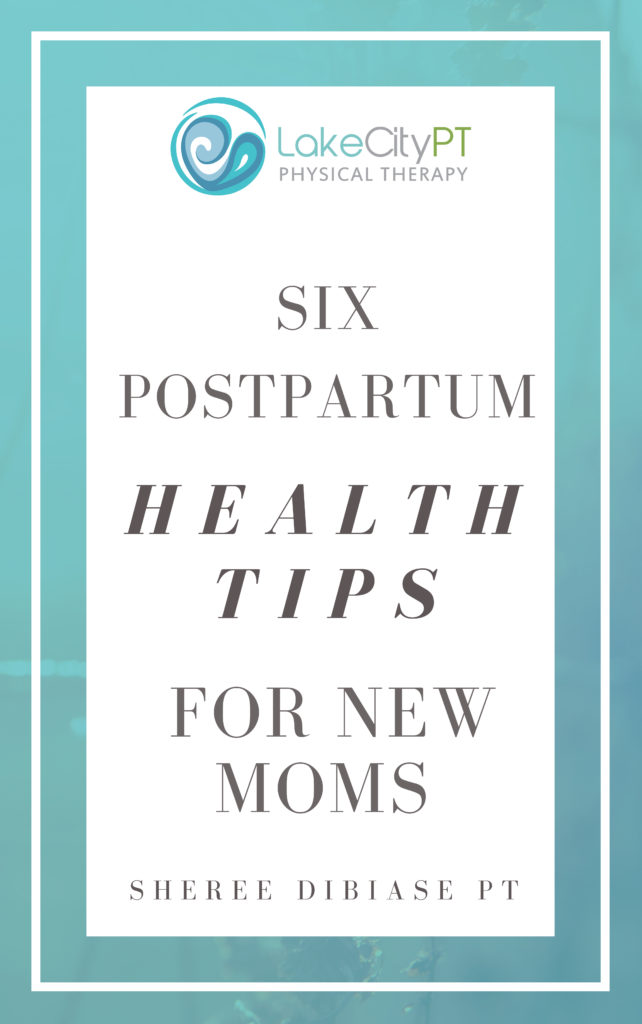Pelvic Pain After Miscarriage
Suffering a miscarriage is one of the most devastating experiences for a pregnant person. Feelings of distress, hopelessness, and even trauma can be amplified if the pregnancy was wanted and planned. While so incredibly harrowing, sadly miscarriages are also not uncommon.
Right now, estimates tell us that around 26% of all pregnancies end in a miscarriage. Besides the natural emotional pain and psychological distress, miscarriages can also affect your body in different ways. Pelvic pain, for example, is a commonly reported physical side effect of miscarriages.
Related Articles
Online Pelvic Floor Physical Therapy
Get pelvic floor physical therapy from home. Our online pelvic floor physical therapy can help with incontinence, constipation, painful intercourse and more.
Schedule a live video call consultation with the button below.
Types of Miscarriage
In gynecology, miscarriage is defined as the spontaneous loss of a pregnancy before the 20-week mark. When a baby dies after the 20th week of gestation, the term most commonly used is “stillbirth”.
Unfortunately, there are several different types of miscarriages, all with different signs and symptoms.
Chemical Pregnancy
Chemical pregnancies are one of the earliest types of miscarriage. They tend to happen before a pregnancy has reached its fifth week, which is also why they are not always easily identified as miscarriages but can be mistaken for heavy periods.
First-Trimester Miscarriage
Most miscarriages happen in the first trimester of pregnancy, which ends at around 12 weeks. During a first-trimester miscarriage, a person can experience heavy bleeding, pelvic pain, back pain, and severe nausea or sickness.
Second-Trimester Miscarriage
While less reported and only affecting a very small percentage of the overall pregnant population, second-trimester miscarriages do happen. They present similar symptoms as first-trimester losses, although these are generally more intense as the pregnancy has progressed over a number of weeks.
Missed Miscarriage
Most miscarriages can be diagnosed when a pregnant woman starts noticing physical symptoms such as severe pain, cramps, and bleeding. However, some women do not report any symptoms at all: this is what happens with a missed miscarriage.
Missed miscarriages tend to occur in the first trimester of pregnancy, although they can also happen at a later gestational age.
Ectopic Pregnancy
An ectopic pregnancy is a type of miscarriage in which the embryo does not develop inside the womb but somewhere else, such as in one of the Fallopian tubes. Embryos developing outside the womb have no chance of survival, which is why ectopic pregnancies are classified as miscarriages.
Molar Pregnancy
When a mass of non-fetal tissue grows inside the uterus, a molar pregnancy occurs. This mass, medically called a “mole”, is the result of abnormal conception and can be diagnosed during a first-trimester ultrasound.
Blighted Ovum
Also known as “anembryonic pregnancy”, a blighted ovum happens when the fertilized egg implants correctly into the womb but does not grow into an embryo despite its gestational sac continuing to develop.
Can Pelvic Pain Signal Imminent Miscarriage?
While post-miscarriage pelvic pain is normal, it is also important to note that this type of pain while the pregnancy is still ongoing might be a sign of imminent miscarriage. Some of the most common signs that a miscarriage might be about to happen include:
- Vaginal bleeding
- Loss of fluid or tissue from the vagina
- Loss of the main pregnancy symptoms
- Abdominal pain and cramps
- Pelvic pain
As you might expect, the intensity and severity of cramps and pelvic pain increase the longer a pregnancy goes on. While in early pregnancy you can alleviate miscarriage-associated pelvic pain by using over-the-counter medication, taking warm baths, or applying a hot water bottle to the affected area, these remedies do not tend to work so well if you are miscarrying in your second trimester.
Post-Miscarriage Pelvic Pain
After a miscarriage, you may experience pelvic pain that varies in severity and intensity depending on how far along you were in your pregnancy. For example, if you experience a miscarriage in the first trimester, your pain might feel similar to pregnancy cramps, and it might last only for a few days.
However, if your miscarriage happens later in pregnancy, your pelvic pain, cramps, and bleeding will be stronger, and they will take longer to ease and disappear completely. If you start feeling or being sick and running a fever alongside your pelvic pain after a miscarriage, seek medical attention right away, as it might be a sign of infection.
Miscarriage Recovery
The recovery journey after a miscarriage can be long and complex, as it involves lots of different aspects of a woman’s life. It’s essential that you allow yourself the time and space you need to grieve and come to terms with what has happened to you and your baby, without letting anyone else force you to “rush” things or expect you to feel better quickly.
Recovery must happen from an emotional, psychological, and physical point of view. Emotionally, you may find solace in confiding in your partner, family, and friends, as well as connecting with other people who have been through a similar experience. Psychologically, you may be advised to attend some counselling sessions, in order for a trusted professional to help you process your feelings.
Your body, too, will need the right type of care following a miscarriage. Once again, it’s paramount to rely on the support of a qualified expert who can accompany you on your journey towards restoring your body to its health.
Lower abdominal pain 3 weeks after miscarriage
Experiencing lower abdominal pain three weeks after a miscarriage is not uncommon and can be attributed to a variety of factors. The body undergoes significant physical and hormonal changes during and after a miscarriage, and some residual discomfort is expected as it heals. The pain may be a result of the uterus contracting back to its normal size, which can cause cramping and aching sensations.
Additionally, any remaining tissue from the pregnancy may lead to persistent pain or infection if not completely expelled during the miscarriage. Emotional and psychological distress can also manifest physically as abdominal discomfort. While mild to moderate pain may be normal, severe or worsening pain, fever, heavy bleeding, or other concerning symptoms should be promptly reported to a healthcare provider, as they may indicate complications that require medical attention. In such cases, seeking professional care is essential to ensure both physical and emotional well-being during the recovery process.
Unbearable cramps after miscarriage
Experiencing unbearable cramps after a miscarriage can be an alarming and distressing symptom. While some degree of cramping is typical during and after a miscarriage, unbearable or excruciating cramps may be indicative of complications that require immediate medical attention. These severe cramps could be a sign of retained tissue in the uterus, infection, or other complications that need prompt diagnosis and treatment by a healthcare provider. It’s crucial not to ignore such intense pain, as it can have physical and emotional implications. Seeking medical care promptly ensures that the underlying issue is addressed, pain is managed effectively, and emotional support is provided during this challenging time.
Stabbing pain on right side after miscarriage
Experiencing stabbing pain on the right side after a miscarriage can be concerning and should not be ignored. While some discomfort and mild cramping are typical during the recovery period following a miscarriage, sharp or stabbing pains on one side could be indicative of various issues.
These may include complications like an ectopic pregnancy (where the fertilized egg implants outside the uterus, usually in the fallopian tube) or the presence of retained tissue from the pregnancy. Both of these scenarios can be serious and require immediate medical attention. It is essential for anyone experiencing such symptoms to seek medical evaluation promptly to determine the underlying cause and receive appropriate care and treatment to safeguard their health and well-being.
Cramping after miscarriage
Cramping after a miscarriage is a common and expected symptom as the body goes through the process of expelling any remaining pregnancy tissue and returning to its pre-pregnancy state. These cramps are often similar to menstrual cramps and may vary in intensity from mild to moderate. The cramping typically begins during the miscarriage itself and can persist for several days to a few weeks as the uterus contracts and returns to its normal size. While this is a normal part of the post-miscarriage healing process, it can be uncomfortable.
Over-the-counter pain relievers, prescribed medications, or heat therapy may be recommended by a healthcare provider to help manage the cramping. However, any severe or worsening cramping, heavy bleeding, fever, or other concerning symptoms should be reported to a healthcare professional, as they may indicate complications that require immediate attention and intervention.
Lower abdominal pain after miscarriage
Experiencing lower abdominal pain after a miscarriage is a common and often expected part of the recovery process. The pain can vary in intensity and duration from person to person. It typically arises as the uterus contracts and returns to its pre-pregnancy size and shape. Additionally, the body may still be expelling residual tissue from the miscarriage, which can cause cramping and discomfort. While mild to moderate pain is usually considered normal, it’s essential to monitor for any concerning symptoms such as severe or worsening pain, heavy bleeding, fever, or unusual discharge.
If any of these symptoms occur, it’s crucial to seek prompt medical attention, as they may indicate complications that require treatment. Otherwise, over-the-counter pain relievers, rest, and the application of a heating pad can often provide relief from lower abdominal pain during the recovery period. Remember that everyone’s healing process is different, and it’s essential to consult with a healthcare provider for personalized guidance and support during this challenging time.
Choosing Physical Therapy for Pelvic Pain
As we mentioned, pelvic pain is one of the most commonly reported concerns that plague women after a miscarriage. This is because the pelvis is one of the areas that are most affected by the physiological and hormonal changes that the pregnant body goes through – even in very early pregnancy.
In order to re-establish the correct strength, health, and balance in your pelvis region post-miscarriage, you might want to look into physical therapy for pelvic pain. At Lake City PT, we specialize in diagnosing and treating post-miscarriage pelvic pain.
Get in touch with us today and schedule your initial consultation. One of our expert therapists will be happy to see you and offer you all the support you need to create a bespoke treatment for your pelvic pain.



